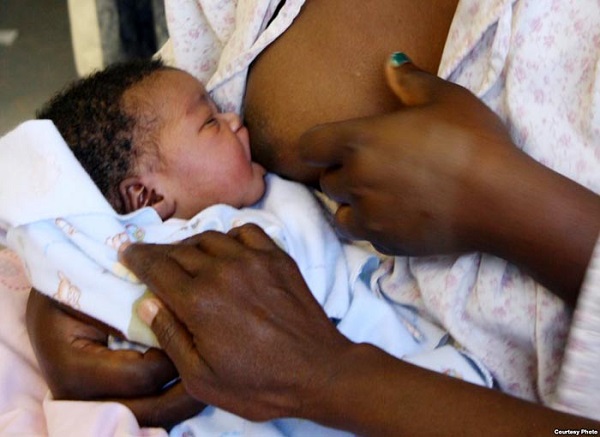
Stakeholders at a policy dialogue in Abuja, on Thursday, called on the public and private sectors to provide on-site lactation rooms and flexible programmes for the wellbeing of mothers and children.
The stakeholders spoke at the Nigeria Health Watch Nutrition Policy Dialogue with the theme ‘Strengthening workplace policies for exclusive breastfeeding: A shared responsibility’.
The News Agency of Nigeria (NAN) reports that the 2021 World Breastfeeding Week focused on the contributions of breastfeeding to the survival, health and wellbeing of women and children.
The director of public health, Ministry of Health, Kaduna State, Dr Hajara Kera, said breastfeeding should be protected as it is vital for survival and wellbeing of babies and their mothers.
She argued that the government, health systems, workplaces and communities had a role to play because breastfeeding was not a one-woman’s job.
She insisted it was important for workplaces to create an environment where mothers would feel encouraged, supported and protected to breastfeed.
“Basically, the policy that we have is pretty much inclusive. In Kaduna State, we have extended maternity leave period from three to six months.
“We are advocating for workplaces to have lactating rooms to help mothers breastfeed their children. This makes women more relaxed and productive at work,” she said.
Kera further said the state was working to ensure there was a place for mothers to lactate and keep their children and called on the state lawmakers to pass an exclusive bill that would ensure strict adherence to the six-month maternity leave.
The chief of section, nutrition, UNICEF- Nigeria, Ms Nemat Hajeebhoy, also said employers should create opportunities to give mothers flexibility at work places.
“Flexibility gives mothers time. One of the benefits of COVID-19 actually is that we can be flexible, we can work from anywhere.
“Making it a new normal, we’ve talked about the new normal in the context of COVID-19, but we need to make breastfeeding the new normal in Nigeria too, sadly, only one out of three children is exclusively breastfed. This is unacceptable.
“Breast milk is an essential food for every child for the first six months. We should all work to implement policies that will allow women to breastfeed effectively and always,” Hajeebhoy stressed.
Saying Nigeria has a long history of a progressive feeding society, she counseled “we should be on 80-90 per cent exclusive breastfeeding’’.
“We have to support every nursing mother to exclusively breastfeed her baby for six months and continue up to 24 months, because it’s for the overall good and it aids productivity,” she said.
Also, the managing director, Nigeria Health Watch, Mrs Vivianne Ihekweazu, reiterated that workplaces should play critical roles in breastfeeding practice.
She said year 2020 changed how people lived their lives and breastfeeding was not left out as a result of the COVID-19 pandemic.
She noted that as many women were gradually returning to work, protective measures should be provided to ensure their safety in workplaces
Another speaker, the senior programme manager, Nigeria Health Watch, Dr Kemisola Agboye, buttressed that workplaces should encourage women to breastfeed exclusively for six months.
She added the International Labour Organisation had said lack of support at the workplace was one of the reasons women stopped breastfeeding before the recommended period. (NAN)

